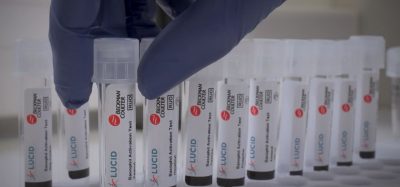Understanding Natasha’s Law
- Like
- Digg
- Del
- Tumblr
- VKontakte
- Buffer
- Love This
- Odnoklassniki
- Meneame
- Blogger
- Amazon
- Yahoo Mail
- Gmail
- AOL
- Newsvine
- HackerNews
- Evernote
- MySpace
- Mail.ru
- Viadeo
- Line
- Comments
- Yummly
- SMS
- Viber
- Telegram
- Subscribe
- Skype
- Facebook Messenger
- Kakao
- LiveJournal
- Yammer
- Edgar
- Fintel
- Mix
- Instapaper
- Copy Link
Posted: 29 June 2021 | Arvind Thandi | 1 comment
FSA offers to help food businesses prepare for upcoming changes to allergen labelling laws – known as Natasha’s Law.


On 1 October 2021, the law on allergen labelling for pre-packed for direct sale (PPDS) foods will change. This means that any food business selling PPDS foods will have to include full ingredients on the product label with allergenic ingredients emphasised within that list. The Food Standards Agency’s (FSA) ambition is for the UK to be the best place in the world to be a hypersensitive consumer. We want to improve the quality of life for people living with food hypersensitivity and support them to make safe, informed food choices to effectively manage risk. The upcoming changes to allergen labelling is a positive step for the two million people living with a diagnosed food allergy in the UK, as well as for those living with food intolerance and coeliac disease.
Also known as ‘Natasha’s Law’, the changes come following the death of teenager Natasha Ednan-Laperouse from an allergic reaction caused by a prepacked baguette which, at the time, did not require allergen labelling.
Where can I find guidance on Natasha’s Law?
It is important that food businesses understand the importance of the new changes, and with only a few months to go until the law comes into effect, the FSA will continue to support businesses as they prepare for these changes. We have a dedicated PPDS hub on the FSA website that features useful information including our food allergy and intolerance training, which has been updated to reflect the changes to PPDS food labelling. We have also created resources such as an ‘FSA Explains PPDS’ video – a tool for businesses to check whether they are affected by the changes, tailored information on PPDS foods, as well as an updated version of our more detailed technical guidance on allergen information and labelling.
On average, two children per school class will have a food allergy and an estimated 10 people each year will die as a result of a food allergy incident.
Engaging with stakeholders is important to the FSA, and we look forward to hosting two webinars in the summer – one for local authorities and one for food businesses across England, Wales and Northern Ireland. The first will be held on 29 July for local authorities and the second will be on 4 August at 2pm BST aimed specifically at food businesses affected by PPDS.
The webinars will provide audiences with practical information as they prepare for the upcoming allergen labelling changes and will feature a range of speakers who can discuss these changes and answer any questions you might have. More information on how to register for these webinars will be made available soon, so please ensure you follow the FSA social media accounts for updates. The business webinar will be recorded and made available on our website afterwards to ensure that those who cannot attend the live events are able to watch at another time. 

Feedback over the last few months from industry partners highlighted a need for further practical information on how PPDS foods should be labelled. Therefore, we published new labelling guidance for businesses affected by the allergen labelling requirements to help them better understand how to label their PPDS food products. The guidance answers many questions such as, what information to include on a food label, how to present a food label, how to produce a food label, and the legal requirements for food labelling. The guidance also looks at Precautionary Allergy Labelling (PAL), which often appears as ‘may contain’ or ‘not suitable for’ information on packaging.
In July 2021, we will be publishing seven guides aimed at specific food sectors. There will be guides for bakery, butchery, caterers, fast food and takeaways, mobile sellers, restaurants, cafes, pubs and schools. The guides will be shared on our website, and each will give practical information on PPDS food labelling with information on how these changes will likely impact each of these sectors. The guides will explain PPDS, include an example of a PPDS label relevant to that sector and provide answers to some frequently asked questions.
Everybody deserves food they can trust. For people with a potentially life-threatening food hypersensitivity, that trust becomes even more important. On average, two children per school class will have a food allergy and an estimated 10 people each year will die as a result of a food allergy incident. We want to reduce avoidable deaths, reduce the negative impact of food hypersensitivity on both consumers and businesses, and make sure that food hypersensitive consumers have access to safe, high quality food.
For more information on PPDS and to view the resources mentioned in this column, please visit the PPDS hub of the FSA website at www.food.gov.uk/ppds.
About the author
Arvind Thandi works in the Food Hypersensitivity policy team within the FSA on projects that aim to improve the quality of life for people with food allergies and intolerances. Arvind has worked in several government departments, including the Department for Environment, Food and Rural Affairs; the Ministry of Justice; and the Cabinet Office.
Related topics
Allergens, Food Safety, Labelling, Packaging & Labelling, Regulation & Legislation










Pity this came into effect 7 years after it was mandatory under EU Law. The comprehensive requirements for the provision of allergen ingredient information to consumers became mandatory under EU Regs 1169/2011.
The UK position is a bloody disgrace.